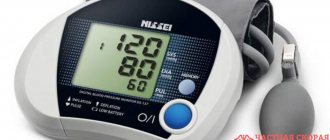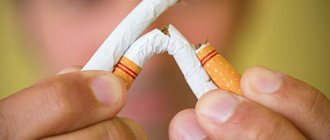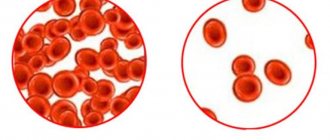The temptation to drink alcohol even when you feel unwell can haunt people with alcohol addiction. Therefore, it is useful for relatives of people suffering from alcoholism to know whether alcohol is compatible with hypertension.
There are several physiological indicators under which it is better not to drink:
- overweight or obesity;
- predisposition to the formation of blood clots in blood vessels;
- when the walls of blood vessels have weak elasticity;
- increased intracranial pressure;
- swelling or tendency to it;
- diabetes or high blood sugar;
- elevated blood cholesterol levels.
If your relative suffers from such ailments, then drinking alcoholic beverages, even beer, negatively affects health and increases the risk of high blood pressure. By the way, beer has the most negative effect on kidney activity.
If you have hypertension, it is better to refrain from using
alcohol more than once a week. And, of course, the individual norm always plays an important role.
The effect of large and small doses of alcohol on the body
According to medical research, a direct relationship has been proven between an increase and decrease in blood pressure depending on the dose of alcoholic beverages taken. Scientists have proven that in most cases, a small amount of alcohol reduces mercury levels, while large doses, on the contrary, increase blood pressure.
Permissible doses of alcohol
Alcohol lowers blood pressure if a person takes it in small quantities at a time. This effect is achieved due to the ability of ethanol, which is part of alcohol, to dilate blood vessels. Due to the expansion of arteries and veins, the pressure in the vascular bed drops, which entails a short-term hypotensive effect.
If a person suffers from hypertension, the tonometer readings may decrease or even return to normal, but this effect is usually short-lived. It lasts no more than two hours, sometimes less. It is worth noting that in patients with normal blood pressure this effect will be less noticeable.
To prevent the negative effects of strong drinks, you should remember that there are certain acceptable alcohol standards for men and women. If you do not exceed them, many negative consequences can be avoided.
If we are talking about dry wine or beer, then for men no more than 2 glasses of wine and half a liter of beer are allowed. For women, these standards are reduced and amount to one and a half glasses of wine and 0.3 liters of beer. Representatives of the stronger half can take 75 g of vodka and cognac, and women no more than 50.
Effect of large doses on the body
If you exceed the permissible doses of alcohol, then after 5–6 hours an increase in blood pressure is observed. Many people are mistaken in thinking that alcohol dilates blood vessels and lowers blood pressure.
Uncontrolled alcohol consumption is the first step to heart and vascular diseases
A large amount of alcohol can indeed lower blood pressure for a short time, but after a few hours a strong vasospasm is observed. In addition, ethanol has the following effect on the body:
- stimulation of the central nervous system;
- increased effects of the hormone adrenaline;
- blood thickening.
Against this background, a person experiences headaches, decreased ability to work, apathy, and irritability. Such manifestations are usually called hangover syndrome.
Important! If the permissible doses of strong drinks are greatly exceeded, there is a serious threat of increased blood pressure, hypertensive crisis, heart attack and stroke.
How to protect your liver?
Do you like wine, systematically exceed the safe dose, and are you worried about weakness, nausea, have you lost your appetite, have you lost weight, have the color of your stool and urine changed? Has your skin turned yellow?
Even if only one such sign appears, consult a doctor immediately.
If you relax with wine infrequently and keep yourself within limits, we still recommend getting examined from time to time, even if nothing bothers you. You don’t have to be an antisocial element or an alcoholic to develop cirrhosis. The liver does not hurt until the very last stages. And both successful and prosperous people get sick.
Here is a list of studies to find out about the condition of the liver and help it in time:
- Examination and examination by a hepatologist-gastroenterologist
- Tests : general blood and urine analysis, biochemistry: ALT, AST, GGT, alkaline phosphatase, bilirubin, protein fractions, lipid profile, glycosylated hemoglobin.
- Research : Ultrasound of the abdominal organs and elastography of the liver.
If there are deviations in the data from this examination, it is worth doing a more detailed one.
Who to trust?
- For those who do their work conscientiously, we care what happens to you. The initial appointment with our specialist lasts about an hour. This means that we pay attention to the most insignificant, at first glance, details. Often this approach helped to make a diagnosis on time and save the patient’s life. If all is well, you will receive recommendations for prevention. Our doctors do not burden you with unnecessary treatment. If, according to the examination data, you need to treat the digestive system or consult related specialists, your attending physician will monitor and coordinate everything.
- Those who have expert knowledge and high qualifications. Our center employs unique federal-level specialists - professors, doctors of science, candidates of science and doctors of the highest category. For some diseases, they are the only experts in Russia. And, of course, we are attentive to each patient, regardless of his status, and are ready to explain in clear, non-medical language how things are with his health and what the prognosis is.
- Those who accurately diagnose and effectively treat. In our center, you can learn everything about the condition of your liver and the risks of drinking wine in just 1 day—that’s exactly how long it takes for the examination. If the results reveal deviations, it is worth doing a more detailed examination.
Experts at the EXPERT Clinic are ready to give you as much information as possible about your condition. And also a forecast of how your liver will feel in the future, and recommend competent treatment to protect it.
The effect of alcohol on hypotensive and hypertensive patients
Each person’s body is a complex and individual mechanism, so it is impossible to guarantee that alcohol will increase or decrease blood pressure. To find out how strong drinks will affect the body in a particular case, you should first determine the working pressure, then measure it again 30 minutes after drinking alcohol.
For hypotension
With hypotension, blood pressure begins to decrease even more after ethanol enters the blood. This happens due to relaxation of the walls of blood vessels, acceleration of heart contractions and the speed of blood movement along the vascular bed.
It cannot be said that such an action is observed in all cases. The speed and intensity of the decrease in blood pressure is influenced by factors such as the age of the person, the frequency and size of the dose of drinks taken. Due to the fact that the effect of drinking alcohol can be unpredictable, patients with low blood pressure are not recommended to joke with their health. The consequences are often the most negative.
If you have hypotension while drinking alcohol, your health only gets worse
For hypertension
As already mentioned, drinks containing ethanol in small quantities can lower blood pressure. This applies to both healthy people and patients suffering from arterial hypertension. At the same time, we must not forget that after a short period of time the pressure begins to increase. This action is extremely undesirable for people with hypertension. In addition, the release of adrenaline into the blood increases, and tachycardia may develop. Drinking is especially dangerous for older people with high blood pressure, because alcohol acts as a cause that often provokes heart attacks, strokes and other life- and health-threatening conditions.
Beneficial properties of red and white wine
There is an opinion among experts that white wine is ideal for quenching thirst, while red wine is intended for pleasure and health. When choosing, we often get lost, not knowing which one to give preference to. From the point of view of scientists, not every alcoholic drink has beneficial qualities, but the main condition is naturalness. As far as natural properties are concerned, these two wines have significant differences. Features of red wine:
- It has a positive effect on the functioning of the heart and its muscles, and is useful for vascular diseases. It will get rid of cholesterol, which is impossible not to note.
- Capable of fully satisfying the body's need for vitamin P.
- Dry wine contains a small amount of sugar and alcohol; it retains the most beneficial components. In particular, experts note varieties such as Cabernet or Sauvignon.
- Over the years, only the cost may rise, but this does not in any way affect the quality of the wine. For health purposes, it is better to give preference to a “young” drink. In addition, it will not affect the female figure.
Characteristics of white wine:
- Consumption in small doses has a beneficial effect on lung function.
- When the drink contains no more than 12% alcohol, it is recommended to drink it in order to protect blood vessels, the heart, from stomach disease, anemia, and metabolic disorders.
- Thanks to their loose consistency, they perfectly quench thirst, maintaining body tone during hot periods.
What can lead to frequent consumption of strong drinks?
A decrease or increase in blood pressure directly depends on the frequency and amount of alcohol taken. Scientists have proven a close relationship between strong drinks when taken regularly and blood pressure in humans. Studies have shown that frequent intake of even acceptable doses negatively affects health and the circulatory system. We must also not forget about the risk of developing alcohol dependence, in which a person begins to drink more and more often and cannot stop.
Rare intake of ethanol in large dosages, even if we are talking about isolated cases, can also provoke negative consequences, cause high blood pressure and a hypertensive crisis. Considering these facts, we can say that any extremes have a negative effect on the body. Only drinking alcohol in small quantities, no more than 1-2 times a month, will not cause harm.
Important! The more often a person drinks drinks containing ethanol, the more often the numbers on the tonometer rise above normal values.
Who shouldn't drink wine at all?
Many people do not know what hidden diseases they have. Drinking alcoholic beverages is strictly prohibited for those who suffer from the following ailments:
- regular headaches;
- stomach ulcer, gastritis;
- allergies in any form, be it a skin rash or swelling;
- asthma;
- mental problems;
- alcohol addiction.
Of course, it is prohibited to combine alcohol with any medications. This may lead to unpredictable results.
In general, consuming 100–150 ml is beneficial for the body. only high-quality wine drink, no more than 10 days in a row. You can slightly increase blood pressure, improve the condition of blood vessels, and also ensure the body's resistance to viral diseases.
Does the type of alcohol affect blood pressure monitor readings?
According to experts, different types of alcohol can have different effects on blood pressure. It is important to note that this only applies to the permissible doses of such drinks.
The effect of alcohol on the body depends on the type of drink
Reduce blood pressure:
- cognac;
- White wine.
Increases blood pressure:
- beer;
- red wine;
- champagne.
The drinks described above contain a minimal amount of alcohol. If you do not exceed the permissible limits, you can avoid serious complications, hypertensive crisis, increased intracranial pressure and other consequences after alcohol. But when the concentration of ethanol exceeds permissible levels, blood pressure, as a rule, always increases.
What should you not eat if you have high blood pressure?
- if you have hypertension, you should exclude strong coffee and strong tea from the menu;
- fatty meat of any kind (during treatment);
- rich broths are prohibited;
- salt must be limited to a minimum;
- You should be careful with baked goods (pies, buns, cakes) or stop eating them altogether. It all depends on the doctor’s recommendations.
What else determines the effect of alcohol on the body?
The hypertensive or hypotensive effect of ethanol depends not only on the type of alcohol and the amount drunk. There are some other factors to consider here. The body's reaction can be very unpredictable, which depends on the individual qualities of a particular organism.
Age
Patients under the age of 35–40 years are much less likely to react to alcohol than older people. It is believed that after 40 years of age, blood pressure increases more often when drinking alcohol. This is explained by the fact that the ability of the cardiovascular system to adapt to ethanol intake is reduced. Consequently, after taking intoxicating drinks, a decrease in blood pressure is first observed, which occurs due to vasodilation. Soon after this, the pressure rises due to the release of hormones into the blood and the transmission of nerve impulses. If ethanol continues to enter the body, the pressure rises even more.
Taking medications
The combination of alcohol and certain medications can be the most unpredictable. Mixing antihypertensive and hypertensive drugs with ethanol is strictly prohibited, as this can cause irreversible consequences. If a person takes antiarrhythmic pills, a sharp decrease in blood pressure may occur when changing body position.
The combination of medications and ethanol is considered unacceptable
It is also worth noting that the result from the combination of alcohol and pills depends on the group of drugs taken:
- diuretics in combination with strong drinks can cause a feeling of dry mouth, decreased physical activity, apathy, and dizziness. Sometimes there is a rapid heartbeat;
- beta blockers and ethanol lead to the development of spasm of blood vessels, sometimes the pulse slows down significantly, blood pressure drops below normal;
- ACE inhibitors combined with alcohol lead to an increased effect of taking the medication. It is allowed to combine them to relieve a hypertensive crisis with a strong increase in tonometer readings;
- Calcium antagonists, which contribute to the narrowing of the walls of blood vessels, in combination with alcohol can cause headaches, dizziness, and increased heart rate.
Many patients believe that alcohol-containing medications such as Corvalol, Barboval can be taken together with strong drinks, because both contain ethanol. This is wrong. The fact is that when combined with alcohol, the effect of medications is enhanced, that is, drugs can greatly lower blood pressure, which often entails unpredictable consequences.
Development of an allergic reaction
Patients suffering from hypotension should be aware of the risk of developing an allergic reaction when drinking alcohol. The fact is that such a reaction can occur not just in the form of rashes and itching on the skin, but also as a sharp decrease in blood pressure to critical levels (below 70/40) - anaphylaxis. That is why, if your blood pressure drops regularly, you should take alcohol with extreme caution.
The body's reaction to strong drinks can be the most unpredictable
“Can I have a glass of wine?”
Patients often ask about this - both those who are preparing for the IVF protocol and those who are already undergoing a cycle. Since the problem is so relevant, let’s look at it in more detail. Let's talk about this with obstetrician-gynecologist, reproductive specialist at GMS IVF Yulia Kikina.
The Minister of Health of the Russian Federation, Veronika Skvortsova, recently officially announced the health benefits of small doses of alcohol*. We can quite agree with this. Our great mentor Hippocrates left us as a legacy not only an oath, but also a description of wine as a healing agent (antiseptic, diuretic, sedative and even as a solvent for medicines).
Let's sum it up
The discussion about the effect of alcohol on blood pressure can take a long time, because the effect of ethanol is expressed differently under certain circumstances. Despite this, several conclusions can be drawn:
- a short-term decrease in blood pressure is observed after taking small doses of alcohol;
- anaphylaxis, accompanied by a severe drop in blood pressure, can be triggered by the development of an allergic reaction while taking ethanol;
- Regardless of the type of alcohol, high doses of such drinks lead to increased heart rate, tachycardia, and increased blood pressure;
- with regular use of intoxicating drinks in people with alcohol dependence, the risk of hypertensive crises, heart attacks and other complications increases;
- It is dangerous to combine alcohol with any medications;
- people who rarely drink alcohol are more likely to experience hypertensive crises.
The existence of a relationship between alcohol and blood pressure is a scientifically proven fact. Alcohol should be taken in limited quantities. This will help prevent many unwanted consequences and maintain health for many years.
Compatibility of wine with blood pressure medications
Taking wine and antihypertensive drugs together can cause unpredictable consequences, since most blood pressure medications are incompatible with alcohol. You can expect both a decrease in effectiveness and a sharp increase in efficiency, as well as the development of any side effects.
Typically, information about the interaction of a particular drug with alcohol is indicated in the instructions for use, but if it is not indicated that the combined use of alcohol and the drug is allowed, it is considered prohibited by default.
Instead of a resume
In Russia, per citizen, including old people and babies, there are 18 liters (!) of pure alcohol per year. This is one of the highest rates in the world. Alcohol kills more than a hundred Russian citizens every day. There are 150 bottles of vodka per year per man in the Russian Federation. These are the statistics.
Your choice is whether to drink alcohol in general, and wine in particular. You decide what kind of wine to drink and how much. Our task is to provide an opportunity to be examined at an expert level in a timely manner and to undergo treatment, if necessary, in order to maintain health.










